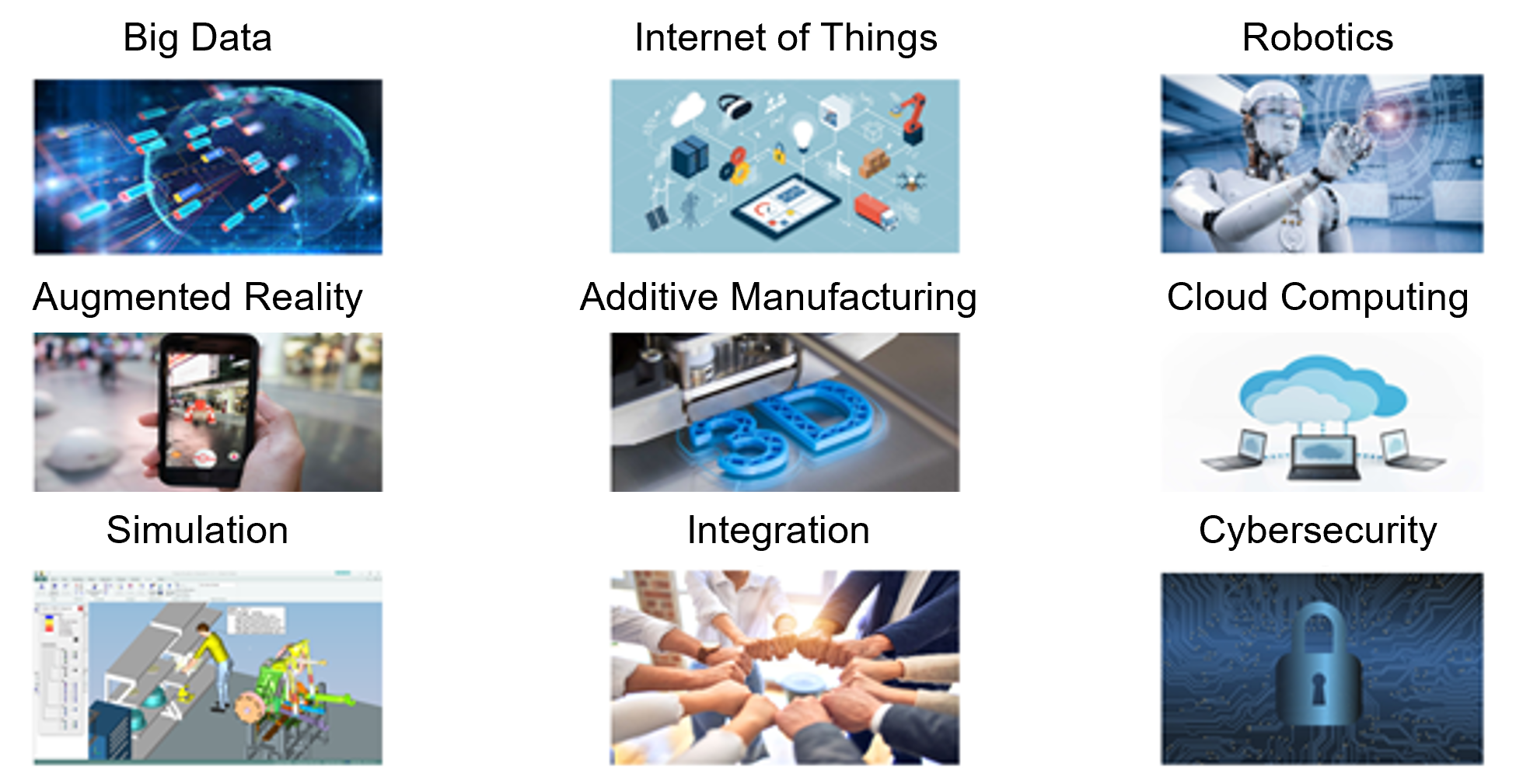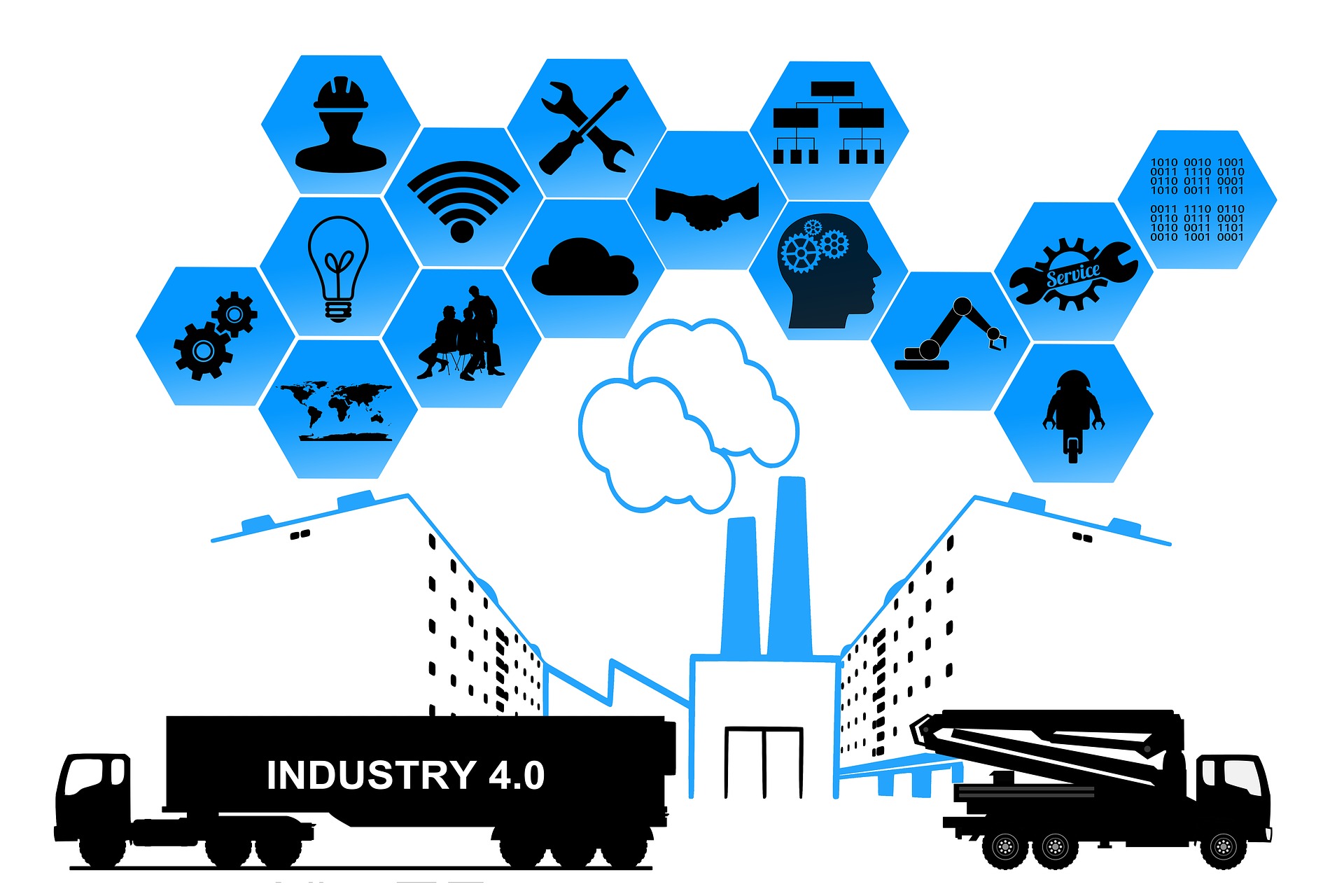Nowadays, Industry 4.0 (also called the Fourth Industrial Revolution) is transforming economies, jobs, and even society. After the advance of new technologies, Industry 4.0 is taking place at an accelerated rate in our daily lives, changing corporate behaviour and, therefore, companies’ strategies to distinguish themselves from their competitors in an increasingly competitive market.
What is Industry 4.0?
Industry 4.0 is a new revolution that combines advanced production and operations techniques with smart technologies that will integrate with organizations, people and assets. Its fundamental pillar is artificial intelligence, closely related to the storage of large amounts of data (Big Data), the use of complex algorithms for their subsequent processing and the massive interconnection of devices and digital systems.
All this means there is a transformation in the way in which business is done. Previously, business leaders were accustomed to traditional data and linear communications, but the real-time shift of data access and artificial intelligence enabled by Industry 4.0 has increased business productivity.
The digital integration of information from different sources and locations allows business to be carried out in a continuous cycle. This flow takes place through a series of iterative steps known as PDP (Physical-Digital-Physical):
- From physical to digital: Information is obtained from the physical environment and a digital record is created.
- From digital to digital: Information is shared and useful and valuable information is obtained through advanced artificial intelligence analysis.
- From digital to physical: Algorithms are used to translate decisions of the digital world into useful data, to provoke actions and changes in the physical world.
Key Technologies of Industry 4.0
The technologies on which Industry 4.0 is based are:

These technologies combine with each other creating digital enterprises that are interconnected and capable of making more efficient decisions.
Organizations must analyse the decision on how and where to invest in these technologies and establish which of them best meets their needs. To do this, companies must continuously adapt to existing changes and take advantage of the opportunities offered by Industry 4.0 to gain ground in the market.
Why is Industry 4.0 important?
It is important to know the potential of this fourth industrial revolution because it does not only focus on production processes, but its scope is much broader, affecting all industries and sectors. Industry 4.0 can improve business operations and revenue growth by transforming products, supply chain and customer expectations. Such a revolution is likely to change the way we do things, but it could also affect how customers interact with them and the experiences they expect to have while interacting with businesses. Beyond that, it could lead to workforce changes, which would require new skills and roles. Technologies can also lead to the creation of completely new products and services, as well as to improvements in products in various ways.
What are the impacts of Industry 4.0?
The impacts caused by Industry 4.0 can be perceived at different levels: whether in large ecosystems, at an organizational level or at an individual level (customers and employees).
- Ecosystems. This impact represents the broadest level of all and goes beyond business operations themselves and how goods and services are produced. Industry 4.0 also affects suppliers, customers, regulatory considerations, investors, and other external experts and influencers that affect the organization (ecosystem). The potential of implementing 4.0 technologies allows interactions between each point of the network, thus connecting all stakeholders.
- Organizations. The capacity to adapt to new customer needs brings with it numerous organizational changes. This allows organizations to be more responsive, proactive and predictive, as well as to reduce their productivity risk.
- Individuals. The concept of Industry 4.0 can mean different things depending on from where we look at it. On the one hand, for employees it can mean a change in the work they are going to develop, while for customers it would mean greater personalization in products and services that best meet their needs.
Industry 4.0 is not just a passing trend, but it is here to stay.
Industry 4.0 is not just a passing trend, but it is here to stay. It is a clear tendency and we have to be prepared. CEMOSA believes that evolution towards the 4.0 paradigm is crucial today to meet the challenges faced by the sector, so it will continue to promote digitization and technological trends as a lever of change. Likewise, a company that fails to adapt to the new needs demanded by the client, will be a company willing to fail.


